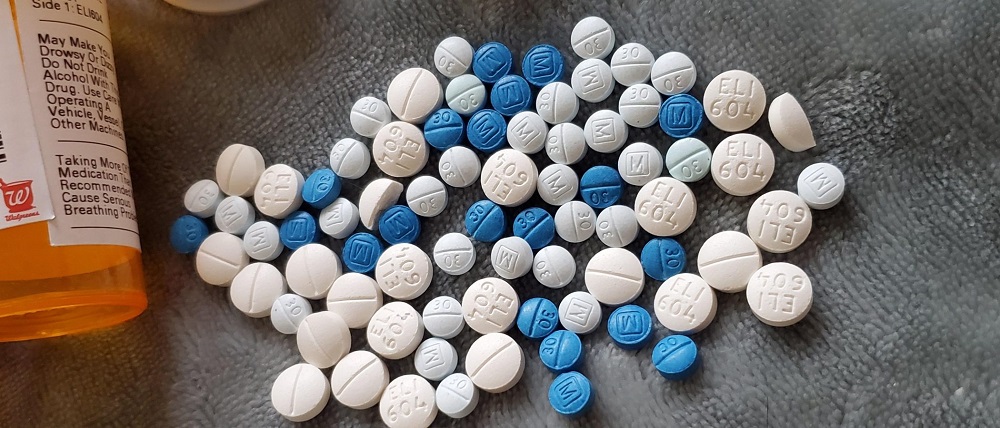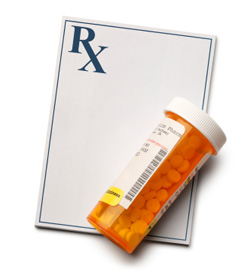|
Call us today
316-260-3445
|
Fentanyl Addiction Treatment

If someone you care about is Addicted to Fentanyl or other Opioid medication...
Fentanyl addiction has been on the rise recently. According to the CDC, Kansas ranks second in the nation in the increase of overdose deaths. The data show that drug overdose deaths in the state increased from 476 in 2020 to 680 in 2021, a 43% jump. Only Alaska, with a 75% increase, had a bigger percentage increase. For those who use Fentanyl regularly, methadone doses of 100mg or higher are often needed. Methadone and Buprenorphine are both first-line opioid abuse treatment options that are available at the Matrix Center. Methadone is preferable to Buprenorphine for patients who are at high risk of Fentanyl overdose and considered as a first option for patients who have done well on methadone in the past; patients who do not want or have not benefited from Buprenorphine; and patients for whom Buprenorphine induction has not been successful. 120mg methadone appears to be the minimum dose necessary to reduce Fentanyl use. Over the past 35 years, methadone treatment has helped millions of people get off the endless roller coaster of opioid drug addiction. They improved their health, worked steady jobs or returned to school, gained happier family and social lives, and finally started feeling good about themselves. If that sounds good to you, and is what you want, then you are ready to start on your own… road to recovery. Many people say that methadone makes them feel “normal” for the first time in a long while. But it’s not a cure for addiction, and it is used as part of a recovery program that includes counseling provided by licensed clinic staff. |
Therapeutic considerations for treatment retention and harm reduction
Optimizing treatment retention is a priority for the Matrix Center. Numerous studies have shown the importance of length of treatment; outcomes for patients who receive fewer than 90 days of treatment with methadone are not significantly different from those who do not enter treatment and the National Institute for Drug Abuse (NIDA) recommends a minimum of twelve months in treatment for best outcomes.How does one get on the road to recovery? The many changes necessary for addiction recovery have been described as a “lifestyle transplant.” People, places, and activities formerly associated with a life of opioid abuse need replacing. This starts with a personal desire for recovery and becoming involved in a support network that encourages drug abstinence. These supports are developed by active participation in the program, improving family relationships and friendships, renewed commitments to work or school, and attending scheduled sessions.
Concurrent Psychiatric illnesses and Opioid Abuse
Opioid addiction and mental health problems such as depression, anxiety, and other psychological disorders often go together. Usually, it is unknown which came first, the addiction or the mental disturbance, and it may not matter. Recovery during methadone maintenance treatment involves mending mental health as well as overcoming active drug addiction. Overcoming addiction and regaining mental health is an ongoing process. Stopping drug abuse is a vital first step, but a return to mental health takes time and full, ongoing participation in the treatment program. It is possible to achieve long-term remission from active addiction and mental disturbances, free of troublesome symptoms.Matrix center counselors take a trauma-informed approach to care and acknowledge emotions, recognize the role that past events may be contributing to current emotional reactions, take the patient’s perspective, and strive to make the current situation as comfortable as possible.
Fee Schedule
Methadone and Counseling $10 per day |
Subutex and Counseling $15 per day |
Buprenorphine/ Naloxone and Counseling $15 per day |
Intake Fee $40 |
Benefits of Fentanyl Detox and Addiction Recovery
 Like other opioids, it’s easy to abuse fentanyl because opioids change the brain. While opioids are powerful pain relievers, they are prone to tolerance. The more often someone takes opioids, the more opioids they will need for the same level of pain relief and euphoria. For some, this can lead to combining substances, crushing tablets, and often overdosing. For those with chronic pain, opioid tolerance builds quickly. So does opioid addiction.
Like other opioids, it’s easy to abuse fentanyl because opioids change the brain. While opioids are powerful pain relievers, they are prone to tolerance. The more often someone takes opioids, the more opioids they will need for the same level of pain relief and euphoria. For some, this can lead to combining substances, crushing tablets, and often overdosing. For those with chronic pain, opioid tolerance builds quickly. So does opioid addiction.Fentanyl Medication assisted treatment is the safest, most effective way to overcome fentanyl abuse and addiction. Benefits of treatment include:
- Dual diagnosis to treat mental health disorders alongside addiction
- Relapse prevention therapy and other programs to reduce reuse
- Individual therapy to help reconnect with loved ones
Many opioid programs will use medically assisted detox to treat fentanyl addiction. This can be a way to ease symptoms and create the time and space people need to begin recovery through various therapies.
Struggling with addiction? We can help.If you think methadone treatment would be a good solution for your rehabilitation, contact Matrix Center at 316-260-3445, send an email to intake@abchealthgroup.com, or check out our contact us page. |
